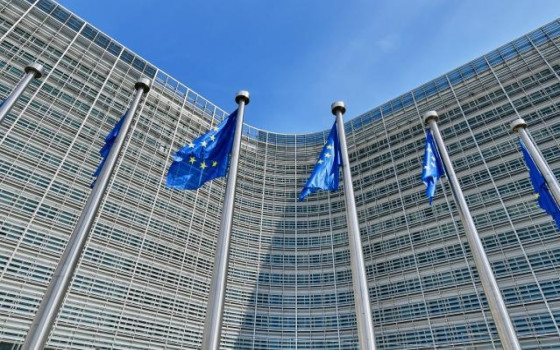
UN experts urge the European Union to ban the detention of migrant children

- Europe and Arabs
- Sunday , 5 May 2024 14:54 PM GMT
New York - Brussels: Europe and the Arabs
Independent UN experts called on European Union member states to ban the detention of migrant children as they prepare to implement the newly adopted Migration and Asylum Charter, and called on the European Commission to develop specific guidelines on the reception and care of children that focus on their rights. According to what was stated in the United Nations daily bulletin.
The experts said, in a press statement, that European Union member states should “explicitly prohibit” the detention of child migrants in their national legislation, in the absence of a unified regional ban, and ultimately put an end to this practice against all other migrants.
They stressed that detaining children because of their or their parents’ immigration status “never serves the best interests of the child and always constitutes a violation of their rights.” Experts warned of the risk that detention of adult migrants could become an established practice at the EU's external borders, "which would make EU migration management worryingly reactionary." They noted that alternatives to deprivation of liberty "are not only necessary to protect people's dignity, humanity, health and well-being, but are also much less expensive."
The EU Charter on Migration and Asylum is expected to enter into force in 2026 after its adoption by the European Parliament, pending approval by the Council of the European Union. The experts welcomed the future establishment of independent mechanisms aimed at monitoring strict respect for human rights during border inspection procedures implemented at the national level, stressing the importance of integrating human rights protection into all procedures and conducting meaningful consultations with civil society organizations.
They said: “All human rights should be fully respected. Even in times of migration crises or large movements, there are some absolute and non-derogable human rights. These include the right to life and freedom from torture and ill-treatment, as well as the principle of non-refoulement. We reiterate the commitment of states Refraining from mass expulsions, and the need to conduct individual assessments of protection needs under international human rights and refugee law.”
The independent experts called on the European Union and its members to expand and diversify regular migration and resettlement pathways, with the aim of preventing and addressing the risks to which refugees and migrants are exposed, including human trafficking and other gross human rights violations.
The experts are:
Jihad Madi, Special Rapporteur on the human rights of migrants;
Siobhan Mullally, Special Rapporteur on trafficking in persons, especially women and children;
Tomoya Obokata, Special Rapporteur on contemporary forms of slavery, including their causes and consequences;
Anne-Marie Skelton, Chair of the Committee on the Rights of the Child;
Edgar Corzo Sosa, Chairman of the Migrant Workers Committee;
Matthew Gillett (Chair-Rapporteur), Ghana Yudkivska (Vice-Chair for Communications), Priya Gopalan (Vice-Chair for Follow-up), Miriam Estrada Castillo and Mumba Malila, Working Group on Arbitrary Detention;
Salma Sassi-Safer, Special Rapporteur on Refugees, Asylum Seekers, Internally Displaced Persons and Migrants in Africa of the African Commission on Human and Peoples’ Rights.
It is noteworthy that special rapporteurs and independent experts are appointed by the Human Rights Council in Geneva, which is an intergovernmental body responsible for promoting and protecting human rights around the world. Rapporteurs and experts are tasked with studying human rights situations and submitting reports on them to the Human Rights Council. It should be noted that this position is honorary, and these experts are not considered employees of the United Nations and do not receive compensation for their work.












No Comments Found